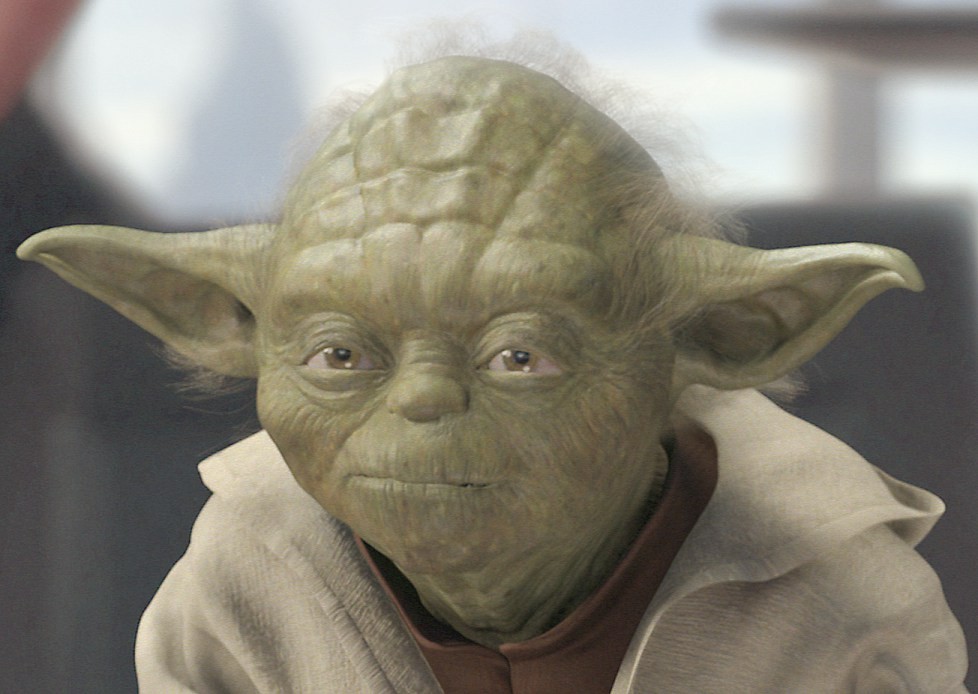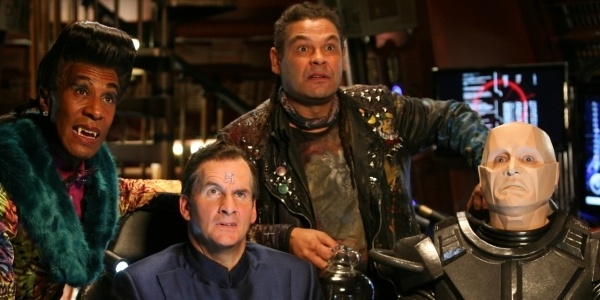The final episode of Series 10 of Red Dwarf concluded tonight, and in my humble opinion (as a dedicated fan of Series 1 – 8) it was a sorry end to a miserable continuation of a beloved franchise. Series 9 started jumping the shark with its overuse of CG and self referencing.
In television ‘jumping the shark’ is the term used to describe a plot device that is so out of character for the series that is marks the end of a celebrated era (and often the series itself!).
Series 8 of Red Dwarf ended on a cliff hanger (in typical style of the series) and following this there were rumours of a film. Due to production difficulties and delays this never eventuated; instead a decade passed, the actors got older, the writers lost their edge and the eventual tele-movie (Series 9) got way too meta and lost the original charm of the franchise. The studio audience, low budget effects and tight story arcs were replaced with a laugh track (or silence) and superior visual effects technology that were in a way inferior to the low budget ‘realism’. (Surely I am not alone in believing the Muppet and stop motion creations such as Yoda and Wallace and Gromit look more real than CG versions (Flushed Away was the first CG Aardman production.)

Another Sci-Fi classic, Futurama, was rebooted by Comedy Central after the tidy finish of Season 5, but with different writers using contemporary references (such as Susan Boyle) for a usually timeless show the magic was gone. This phenomenon is not limited to Sci-Fi of course. NBC‘s Community was amazingly self referential and meta, and still different, but lost its way in Season 3. Arrested Development looks set to exploit its own brand equity (I hope I’m wrong) with a movie feature made seven years after all the ends were tied up. P.S. Indiana Jones IV was a travesty!
I admire John Cleese (Fawlty Towers) and Jerry Seinfeld (Seinfeld) for their ability to say no to brand extensions despite the huge demand for the continuation and revival of their brands. Often it is the case that a network or production company halts progress on the next series or instalment and revives it too late (Foyle’s War has an awkward two endings, one at Series 6 and then at Season 7) but perhaps the creators should just know when to call it quits and leave the audience wanting more.
Consumer Brands and Services are no different (Congrats if any marketing readers are still with me on this geeky post!), there will always be pressure and temptation to stretch the brand that little bit further, to enter a category or go after a market just outside the current one, but there will be a risk of alienating those whop love the original, and tainting a brand history. Virgin Brides spring to mind.
I would advocate holding back, ensuring there is a hunger for the original, not leaving a bad taste in people’s mouths.
